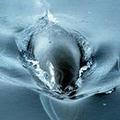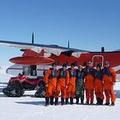 世界上第一個針對非致命性的鯨魚研究國際工作坊於23日雪梨展開,以對抗由日本致命的鯨魚補殺研究,該研究每年在南洋和北太平洋捕殺數百隻的鯨魚。
世界上第一個針對非致命性的鯨魚研究國際工作坊於23日雪梨展開,以對抗由日本致命的鯨魚補殺研究,該研究每年在南洋和北太平洋捕殺數百隻的鯨魚。
澳洲的環境部長賈瑞特表示澳洲會帶頭做起,用更好的方法管理南洋鯨群,並向世界展示鯨魚研究可以用非致命的方法來完成。
「這是世界上最完整的鯨魚研究合作,合作伙伴對發展研究鯨魚的科學方法有一致的興趣,但是卻對為研究而宰殺鯨魚沒有興趣。」賈瑞特在開幕式上如此表示。
賈瑞特展望新的南洋研究合作首先在區域研究合作上可以和緩國際捕鯨委員會上補鯨國和保育鯨魚國家間的衝突,這樣的衝突已經拖延了會議數年之久。
 「這個星期,對南洋有共同興趣的13個國家會與科學家和專家共同研商出一致的方法,帶領未來科學研究的焦點放在保育鯨魚之上,「這是我們所有人的一個機會,以檢驗現在南洋的研究工作、討論研究的優先順序、發現認知落差、同時著手安排如何在非致命的基礎上,建立科學研究的計畫。」賈瑞特這樣說明。
「這個星期,對南洋有共同興趣的13個國家會與科學家和專家共同研商出一致的方法,帶領未來科學研究的焦點放在保育鯨魚之上,「這是我們所有人的一個機會,以檢驗現在南洋的研究工作、討論研究的優先順序、發現認知落差、同時著手安排如何在非致命的基礎上,建立科學研究的計畫。」賈瑞特這樣說明。
參與的國家會使用現代的研究技術像是基因、分子技術、衛星定位、聲學探測和航空探測以研究鯨群的數量。「在這個星期之前,我們希望擬出五年計畫的草稿在國際捕鯨委員會上發表,該委員會的下一次會議是在今年六月葡萄牙舉行。」
 來自四大洲的國家參加了本週在澳洲雪梨國家航海博物館內的工作坊,包括澳洲、阿根廷、巴西、智利、哥斯大黎加、法國、德國、義大利、墨西哥、紐西蘭、秘魯、南非和美國。
來自四大洲的國家參加了本週在澳洲雪梨國家航海博物館內的工作坊,包括澳洲、阿根廷、巴西、智利、哥斯大黎加、法國、德國、義大利、墨西哥、紐西蘭、秘魯、南非和美國。
澳洲已承諾了超過1400萬澳幣的經費以發展並領導南洋研究的合作,同時確保此合作在研究平台上、科學家和儀器上得到必要的協助,此協助至少會持續至2013-2014年。
賈瑞特說澳洲會一次地對國際補鯨委員會投下50萬澳幣,以設立一筆南洋研究合作基金,這筆基金由國際補鯨委員會來管理,並支持其他國家直接協助以及參與南洋研究合作,該筆基金也開放給國際補鯨委員會的成員國自由認捐。
The world's first international workshop on non-lethal whale research opened in Sydney today in an effort to counter the Japanese lethal "research" whale hunt that kills hundreds of whales in the Southern Ocean and the North Pacific every year.
Environment Minister Peter Garrett said Australia is taking the lead to better manage the whales of the Southern Ocean and in the process, show the world that scientific research on whales can be done without resorting to lethal measures.
"This is about building the world's most comprehensive whale research partnership with countries interested in developing an agreed scientific approach to research � one that doesn't involve killing whales," Garrett said at the opening session.
Garrett envisions the new Southern Ocean Research Partnership as the first in a system of regional research partnerships that will counteract the bitter split in the International Whaling Commission between the whaling nations and the whale conservation nations that has stalled the work of the commission for years.
"This week, 13 nations with a common interest in the Southern Ocean will work with scientists and specialists on an agreed approach to take us to a future where conservation of whales is the focus of science. "This is an opportunity for us all to examine current Southern Ocean research efforts, discuss research priorities, identify knowledge gaps, and map out how to build a scientific research program based on non-lethal methods," Garrett said.
The partner nations will use modern research technologies such as genetic and molecular techniques, satellite tagging, acoustic surveys and aerial surveying of cetacean populations.
"By the end of the week, we hope to have a draft five-year plan to present at the International Whaling Commission when it next meets in Portugal this June," he said.
Countries from four continents are participating in this week's workshop at the Australian National Maritime Museum in Darling Harbour - Australia, Argentina, Brazil, Chile, Costa Rica, France, Germany, Italy, Mexico, New Zealand, Peru, South Africa, and the United States.
Australia has committed more than A$14 million to develop and lead the Southern Ocean Research Partnership and to ensure it has sufficient support, in the form of research platforms, scientists and equipment, to continue to at least until 2013-2014.
Garrett said Australia will make a one-time contribution of A$500,000 to the International Whaling Commission to establish a Southern Ocean Research Partnership Fund, to be administered by the IWC.
This fund will allow other countries to directly support and take part in the Southern Ocean Research Partnership and will be open to voluntary contributions from all IWC member nations.

